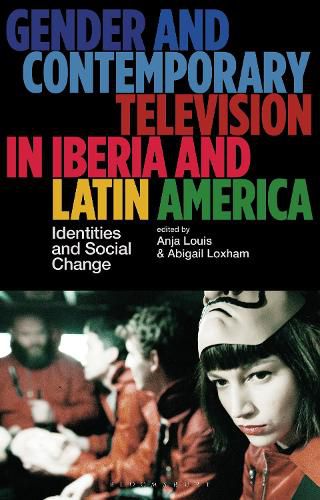Readings Newsletter
Become a Readings Member to make your shopping experience even easier.
Sign in or sign up for free!
You’re not far away from qualifying for FREE standard shipping within Australia
You’ve qualified for FREE standard shipping within Australia
The cart is loading…






This book provides an inclusive and intersectional look into television from Latin America and the Iberian Peninsula. Each of the essays, written by international scholars across various disciplines, offer close textual analyses of popular series from Mexico, Spain, Brazil and Cuba, these include La casa de papel (2017-2021), Drag Race Espana (2021-), Ines del alma mia (2020) and El ministerio del tiempo (2015). The detailed case studies of seminal local and global hits provide overdue critical attention to Latin American television programming, highlighting on screen representations of gendered identities and the role of online streaming in facilitating social change.
The collection goes on to explore recent industrial changes through first hand interviews with prominent practitioners such as Veronica Fernandez and Leticia Dolera. Discussing a broad range of genres including the telenovela, melodrama, historical drama and reality TV, alongside critical theories of media and gender, the collection contextualises and interrogates representational practices in Spanish television programming.
$9.00 standard shipping within Australia
FREE standard shipping within Australia for orders over $100.00
Express & International shipping calculated at checkout
This book provides an inclusive and intersectional look into television from Latin America and the Iberian Peninsula. Each of the essays, written by international scholars across various disciplines, offer close textual analyses of popular series from Mexico, Spain, Brazil and Cuba, these include La casa de papel (2017-2021), Drag Race Espana (2021-), Ines del alma mia (2020) and El ministerio del tiempo (2015). The detailed case studies of seminal local and global hits provide overdue critical attention to Latin American television programming, highlighting on screen representations of gendered identities and the role of online streaming in facilitating social change.
The collection goes on to explore recent industrial changes through first hand interviews with prominent practitioners such as Veronica Fernandez and Leticia Dolera. Discussing a broad range of genres including the telenovela, melodrama, historical drama and reality TV, alongside critical theories of media and gender, the collection contextualises and interrogates representational practices in Spanish television programming.